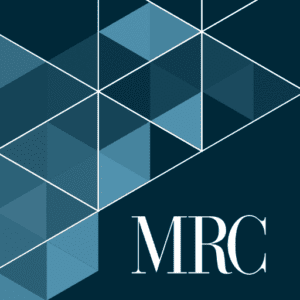The Future of Litigation Support: Trends and Predictions
 The legal field is undergoing a transformation, driven by rapid technological advancements and significant procedural changes. As we look to the future, the role of litigation support is poised to evolve in unprecedented ways. This blog explores the emerging trends and predictions that are set to redefine litigation support, providing insights into how legal professionals can stay ahead in a rapidly changing landscape.
The legal field is undergoing a transformation, driven by rapid technological advancements and significant procedural changes. As we look to the future, the role of litigation support is poised to evolve in unprecedented ways. This blog explores the emerging trends and predictions that are set to redefine litigation support, providing insights into how legal professionals can stay ahead in a rapidly changing landscape.
Embracing Technological Innovation
Artificial Intelligence and Machine Learning: AI and machine learning are at the forefront of technological innovation in litigation support. These technologies are improving the efficiency and accuracy of legal research, document review, and evidence analysis, enabling attorneys to make more informed decisions faster. As AI tools become more sophisticated, we can expect them to handle increasingly complex tasks, from predicting case outcomes to suggesting legal strategies.
Blockchain for Evidence Management: Blockchain technology is beginning to make its mark on litigation support by providing a secure and immutable ledger for evidence management. This can revolutionize how documents are stored, verified, and shared within the legal ecosystem, ensuring the integrity of evidence and reducing the potential for tampering.
The Rise of Virtual Litigation
The COVID-19 pandemic accelerated the adoption of virtual courtrooms, and this trend is expected to continue. Virtual litigation offers numerous advantages, including increased accessibility and reduced costs. However, it also requires litigation support professionals to be proficient with digital platforms and virtual presentation tools. Future litigation support will need to include services that prepare clients and attorneys for virtual appearances, ensuring that the technological aspects of litigation are seamlessly managed.
Data Security and Privacy Concerns
As legal practices increasingly rely on digital tools, the importance of data security and privacy has never been more critical. Litigation support professionals will need to prioritize the protection of sensitive information through advanced cybersecurity measures. This includes not only securing data against unauthorized access but also ensuring compliance with evolving data protection regulations.
Predictive Analytics
Predictive analytics is set to transform litigation support by providing insights into legal trends, judge rulings, and the likely success of various legal strategies. By analyzing vast amounts of data, predictive analytics tools can help legal teams make more strategic decisions about which cases to pursue and how to structure their arguments.
Customized and Client-Centric Solutions
As the legal landscape becomes more complex, the demand for customized and client-centric litigation support solutions will grow. Clients expect solutions that are tailored to their specific needs and circumstances, requiring litigation support professionals to adopt a more personalized approach. This trend will likely lead to more collaborative relationships between attorneys and litigation support specialists, focusing on creating bespoke solutions that enhance case outcomes.
Conclusion
The future of litigation support is bright, with technological advancements and procedural changes setting the stage for significant improvements in how legal support is provided. By staying informed about these trends and adapting to the evolving landscape, litigation support professionals can offer invaluable assistance to legal teams, ensuring they are well-prepared to meet the challenges of tomorrow’s legal environment.


